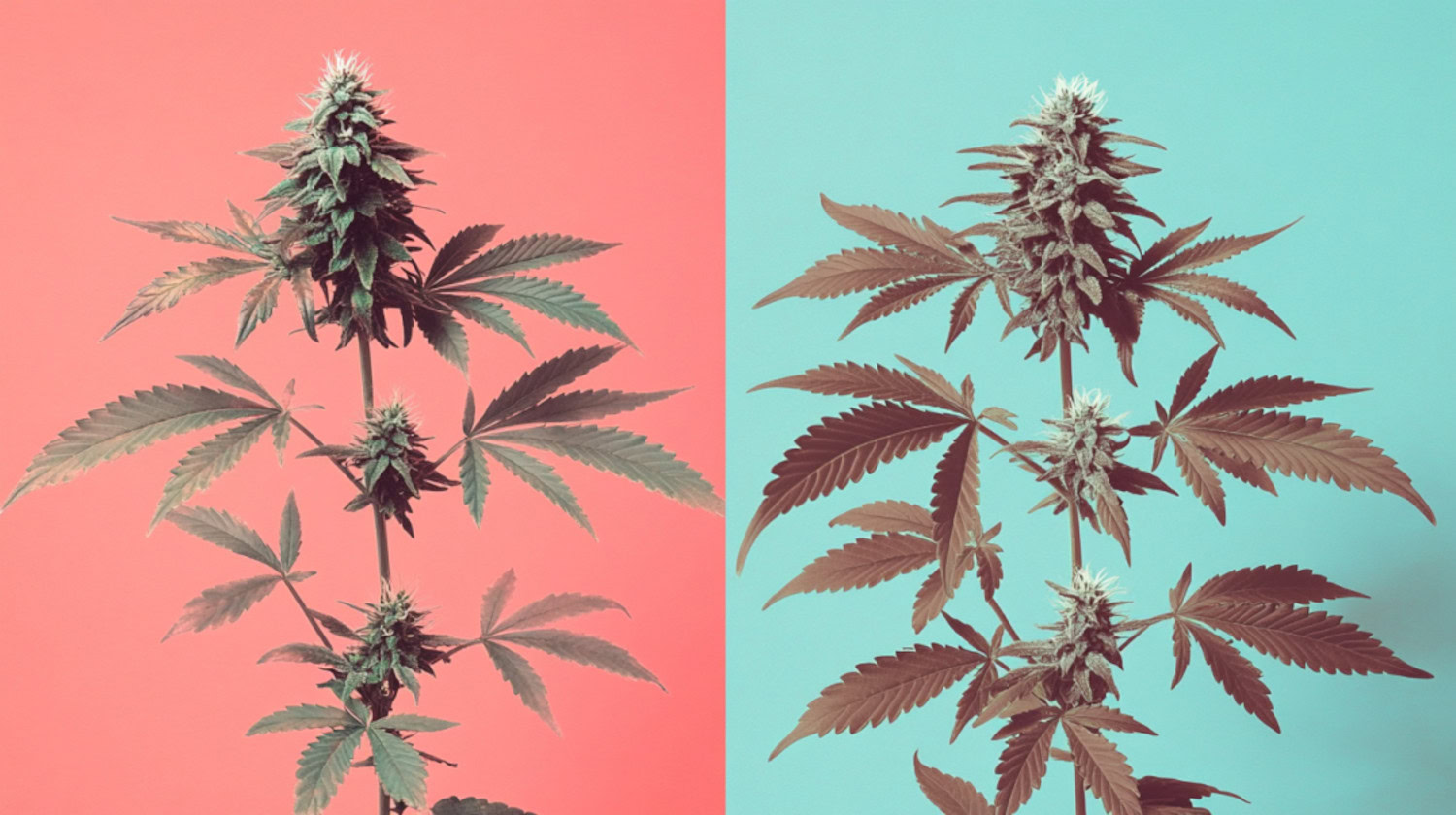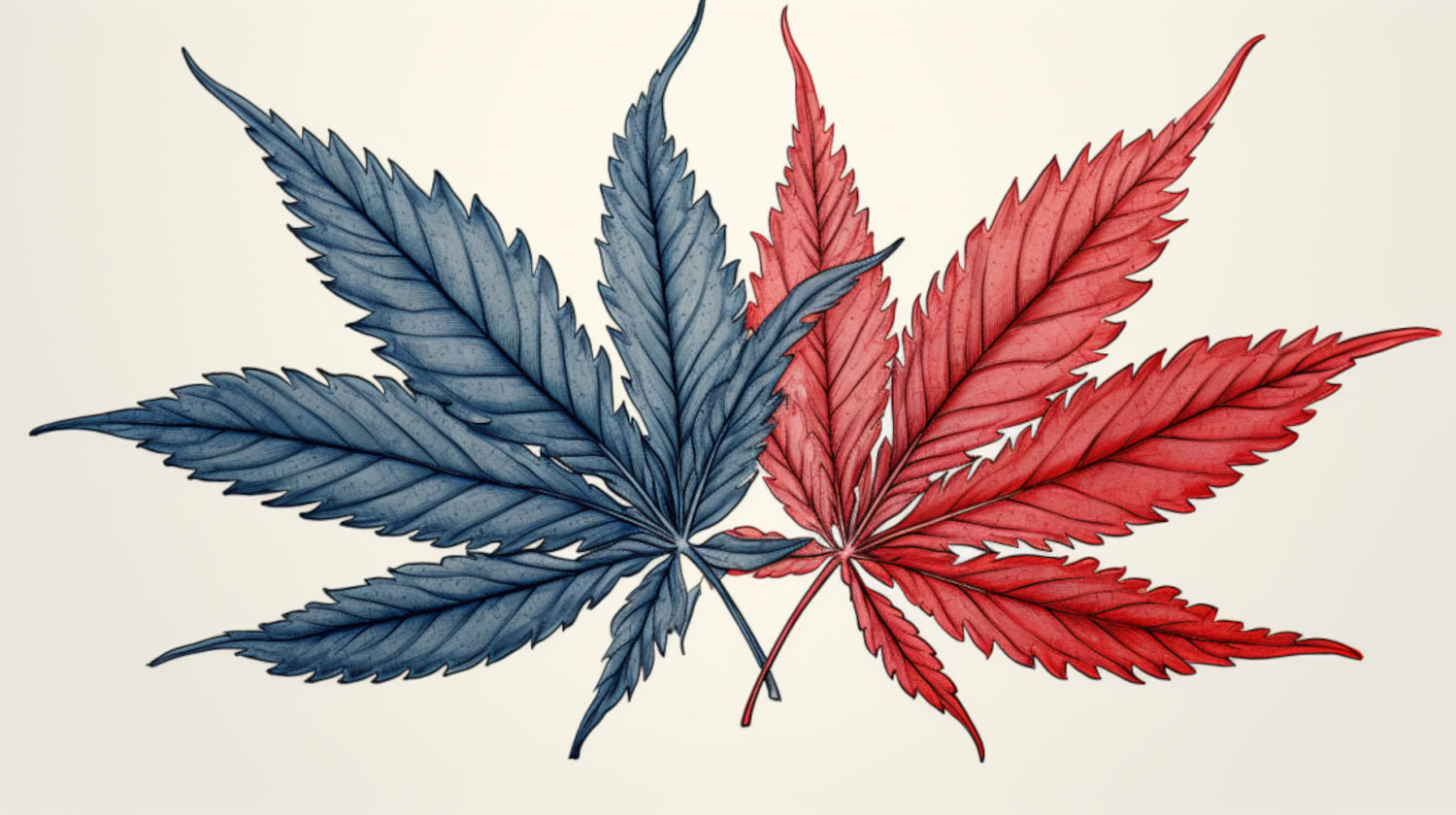In This Article
- What Is CBG?
- What Is CBD?
- Effects of CBD and CBG
- Effects of CBD
- Effects of CBG
- CBG vs CBD: The Benefits and Drawbacks
- CBD Pros
- CBD Cons
- CBG Pros
- CBG Cons
- CBG vs CBD: The Uses Compared
- CBD Uses
- CBG Uses
- CBD and CBG: Better Together
- What Is Better, CBD or CBG?
- What Does CBG Do For You?
- Does CBD or CBG Make You Sleepy?
- Is CBG or CBN Better for Anxiety?
- Making Sense of Cannabinoids
- References
Key Takeaways
- CBG and CBD are both non-intoxicating cannabinoids with unique effects.
- CBD is commonly used for anxiety, inflammation, and sleep.
- CBG may support focus, gut health, and mood regulation.
Cannabidiol (CBD) has become a household name, recognized for its calming and healing effects. But a new cannabinoid, cannabigerol (CBG), is also on the market and gaining buzz as more people learn about its benefits.
Both CBD and CBG are non-intoxicating, meaning they may offer therapeutic effects without the high associated with THC. Studies show their effectiveness in treating various conditions, from chronic pain to anxiety.
However, since CBD and CBG offer similar health benefits, the CBG vs CBD debate comes down to the details.
What Is CBG?
CBG is a lesser-known cannabinoid derived from the cannabis plant, just like CBD. It originates from cannabigerolic acid (CBGA), which is present in large amounts in young cannabis plants.1 As the plant matures, CBG levels typically reduce to about 1% in most plants, though some specially bred cultivars may contain up to 20%.
Unlike the extensively researched CBD, CBG research is still in its infancy. Early studies suggest CBG is as effective as CBD for various ailments due to its potential anti-inflammatory, muscle relaxant, pain-relieving, and antibacterial properties. Notably, CBG has been shown to be effective against bacteria like MRSA.2
Early user reports indicate possible side effects such as dry mouth, sleepiness, and increased appetite.3 Still, many users find significant relief from conditions like anxiety, chronic pain, and depression with CBG-rich products.1,4
Despite its promising benefits, definitive clinical evidence on CBG’s effects in humans is limited.
What Is CBD?

CBD, one of the most popular cannabinoids, is known for its therapeutic benefits without the high associated with THC. CBD is derived from its acidic precursor, cannabidolic acid (CBDA), which is converted to CBD through decarboxylation.
Extensive research has shown that CBD may help alleviate symptoms of a wide range of health issues, including anxiety, epilepsy, inflammation, and chronic pain. Its ability to interact with the body’s endocannabinoid system (ECS) helps regulate crucial functions such as mood, sleep, and pain.
Studies have shown that CBD may help individuals with severe health conditions like psychotic disorders, cardiovascular diseases, and diabetes and even suggest its efficacy in cancer treatment programs.5
Effects of CBD and CBG
CBG and CBD are both found in cannabis, but they have different functions. CBD may offer calming effects and is often used to help with sleep or pain. CBG may boost focus and support digestion. Both are non-intoxicating and may work well together.
Effects of CBD
- Relieves Anxiety and Stress: CBD is known for its calming effects by interacting with serotonin receptors, which play a role in mood regulation. This may reduce stress and anxiety.5
- Pain Relief: CBD is often used to manage chronic and acute pain through its anti-inflammatory properties and ability to alter pain perceptions within the body’s ECS.5
- Neurological Benefits: Studies suggest that CBD has neuroprotective properties. It may be beneficial for treating neurological disorders such as epilepsy.5
- Improves Sleep: CBD can help enhance sleep quality and duration, particularly for those who have insomnia or sleep disturbances.5
- Nausea Management: CBD acts as an activator, or agonist, of the 5-HT1A serotonin receptor, helping to reduce nausea.6
Effects of CBG
- Reduces Inflammation: CBG has shown significant anti-inflammatory effects, which may be helpful for conditions like inflammatory bowel disease.
- Stimulates Appetite: Unlike CBD, which may not influence or decrease appetite, CBG has been shown to boost hunger significantly.7,3
- Antibacterial Properties: CBG has shown effectiveness against various bacterial strains, especially those resistant to traditional antibiotics.2
- Anxiety Management: CBG helps manage anxiety without causing intoxication.8
CBG vs CBD: The Benefits and Drawbacks

CBD Pros
- Wide-Ranging Health Benefits: CBD has demonstrated potential effectiveness in managing anxiety, chronic pain, epilepsy, and insomnia.4
- Non-Intoxicating: CBD may provide relief without the intoxicating effects of THC, making it suitable for users who want to avoid feeling high.
- Supported by Research: Extensive clinical research has confirmed CBD’s effectiveness in relieving symptoms of various conditions.
CBD Cons
- Potential Side Effects: CBD may cause dry mouth, drowsiness, and gastrointestinal issues in some individuals. It may also interact with other medications.9
- Inconsistent Quality: Due to variable regulatory standards, CBD products can differ widely in quality and potency.10
- Cost: High-quality CBD products can be expensive, potentially limiting accessibility for some users.
CBG Pros
- Promising Medical Benefits: New research suggests CBG has anti-inflammatory, antibacterial, and neuroprotective properties, showing promise for conditions like inflammatory bowel disease and glaucoma.1
- Synergistic Benefits: CBG may enhance the therapeutic effects of other cannabinoids through the entourage effect.11
CBG Cons
- Limited Research: There is less comprehensive research on CBG compared to CBD, leaving some of its potential effects and side effects less understood.
- Availability and Cost: CBG is rarer to find in isolated form and often more expensive than CBD, making it less accessible.
- Potential Side Effects: While generally considered safe, CBG can cause dry mouth, fatigue, increased appetite, gastrointestinal distress, and occasionally headaches.4
CBG vs CBD: The Uses Compared

CBD Uses
- Stress Relief: Regularly used to help manage daily stress without impairing cognitive function. It’s practical for use throughout the day.
- Recovery Aid: Popular among athletes for its effectiveness in reducing inflammation and muscle soreness after workouts for quicker recovery.
- Sleep Enhancement: Commonly used to improve sleep quality, helping those with insomnia or sleep disturbances settle into a more consistent sleep routine.5
- Support in Cancer Care: Used to potentially alleviate side effects of cancer treatments like chemotherapy, particularly for managing nausea and pain, under medical advice.5
CBG Uses
- Gastrointestinal Support: Used to manage symptoms of conditions like Crohn's disease and colitis by reducing inflammation in the digestive tract.12
- Pain Management: CBG shows promise in managing both chronic and acute pain, potentially more effectively than conventional pain medications.8
- Appetite Enhancement: This is especially valuable for patients needing nutritional support during recovery or treatment to help stimulate appetite effectively.3
- Antibacterial Uses: CBG is especially good at fighting off tough bacteria, more so than CBD. It's also gentle on your skin's natural defenses, helping to tackle infections without harming the good bacteria on your skin.2
CBD and CBG: Better Together
When CBD and CBG are combined, they may amplify each other’s benefits due to the entourage effect, where each cannabinoid enhances the effects of the other, potentially leading to greater health benefits.
For example, research has shown that while CBG offered less anti-inflammatory benefit than CBD alone, combining the two showed the most significant outcome.11
Together, these cannabinoids may provide a more comprehensive approach to managing pain, anxiety, and inflammation.
What Is Better, CBD or CBG?
It depends on what you're looking for. CBD may be great for easing anxiety, managing pain, and helping with sleep.4 CBG may help fight inflammation and bacteria and boost your appetite if you're undergoing certain treatments.1,3 If you're unsure, chatting with a healthcare professional about your needs is a good idea.
What Does CBG Do For You?
CBG may help calm inflammation, which might help with conditions like inflammatory bowel disease. It is also antibacterial, can ease anxiety, and may help with appetite during treatments.1,3
Does CBD or CBG Make You Sleepy?
Higher doses of CBD have been studied for helping with sleep.4 CBG doesn't directly make you sleepy but might help you get better sleep by reducing anxiety and pain.
Is CBG or CBN Better for Anxiety?
It is unknown if CBG or CBN is better for anxiety; trying out both or talking to a doctor can help determine which works best for you.
Making Sense of Cannabinoids
Whether you go with CBD or CBG (or both) depends on what you’re hoping to get out of your cannabis experience. CBD is more widely available and is frequently used in daily wellness routines. CBG is less common but may offer unique benefits for some users.
While CBD is recognized for its calming effects and ability to manage pain, CBG is gaining attention for its potential to reduce inflammation and combat resistant bacteria.
Everyone responds differently, so start low and track how you feel. Whether you choose CBD, CBG, or a combination of both, take note of each experience and adjust the cannabinoid and dosage according to your needs and preferences.
References
- Jastrząb A, Jarocka-Karpowicz I, Skrzydlewska E. The Origin and Biomedical Relevance of Cannabigerol. Int J Mol Sci. 2022;23(14):7929. Published 2022 Jul 19. doi:10.3390/ijms23147929
↩︎ - Luz-Veiga M, Amorim M, Pinto-Ribeiro I, Oliveira ALS, Silva S, Pimentel LL, Rodríguez-Alcalá LM, Madureira R, Pintado M, Azevedo-Silva J, et al. Cannabidiol and Cannabigerol Exert Antimicrobial Activity without Compromising Skin Microbiota. International Journal of Molecular Sciences. 2023; 24(3):2389. https://doi.org/10.3390/ijms24032389
↩︎ - Brierley DI, Samuels J, Duncan M, Whalley BJ, Williams CM. Cannabigerol is a novel, well-tolerated appetite stimulant in pre-satiated rats. Psychopharmacology (Berl). 2016;233(19-20):3603-3613. doi:10.1007/s00213-016-4397-4
↩︎ - Russo EB, Cuttler C, Cooper ZD, Stueber A, Whiteley VL, Sexton M. Survey of Patients Employing Cannabigerol-Predominant Cannabis Preparations: Perceived Medical Effects, Adverse Events, and Withdrawal Symptoms. Cannabis Cannabinoid Res. 2022;7(5):706-716. doi:10.1089/can.2021.0058 ↩︎
- Peng J, Fan M, An C, Ni F, Huang W, Luo J. A narrative review of molecular mechanism and therapeutic effect of cannabidiol (CBD). Basic & Clinical Pharmacology & Toxicology. 2022;130(4):439-456. doi:https://doi.org/10.1111/bcpt.13710
↩︎ - Parker LA, Rock EM, Limebeer CL. Regulation of nausea and vomiting by cannabinoids. Br J Pharmacol. 2011;163(7):1411-1422. doi:10.1111/j.1476-5381.2010.01176.x
↩︎ - Pinto JS, Martel F. Effects of Cannabidiol on Appetite and Body Weight: A Systematic Review. Clinical Drug Investigation. 2022;42. doi:https://doi.org/10.1007/s40261-022-01205-y
↩︎ - Cuttler C, Stueber A, Cooper ZD, Russo E. Acute effects of cannabigerol on anxiety, stress, and mood: a double-blind, placebo-controlled, crossover, field trial. Scientific Reports. 2024;14(1). doi:https://doi.org/10.1038/s41598-024-66879-0 ↩︎
- Huestis MA, Solimini R, Pichini S, Pacifici R, Carlier J, Busardò FP. Cannabidiol Adverse Effects and Toxicity. Curr Neuropharmacol. 2019;17(10):974-989. doi:10.2174/1570159X17666190603171901
↩︎ - Li J, Carvajal R, Bruner L, Kaminski NE. The current understanding of the benefits, safety, and regulation of cannabidiol in consumer products. Food Chem Toxicol. 2021;157:112600. doi:10.1016/j.fct.2021.112600
↩︎ - Lorena C, Keir-Rudman S, Horniman N, Clarkson N, Page C. The anti-inflammatory effects of cannabidiol and cannabigerol alone, and in combination. Pulmonary Pharmacology & Therapeutics. 2021;69:102047-102047. doi:https://doi.org/10.1016/j.pupt.2021.102047
↩︎ - Anderson BD, Sepulveda DE, Nachnani R, et al. High Cannabigerol Hemp Extract Moderates Colitis and Modulates the Microbiome in an Inflammatory Bowel Disease Model. Journal of Pharmacology and Experimental Therapeutics. 2024;390(3):331-341. doi:https://doi.org/10.1124/jpet.124.002204
↩︎
The information in this article and any included images or charts are for educational purposes only. This information is neither a substitute for, nor does it replace, professional legal advice or medical advice, diagnosis, or treatment. If you have any concerns or questions about laws, regulations, or your health, you should always consult with an attorney, physician or other licensed professional.




